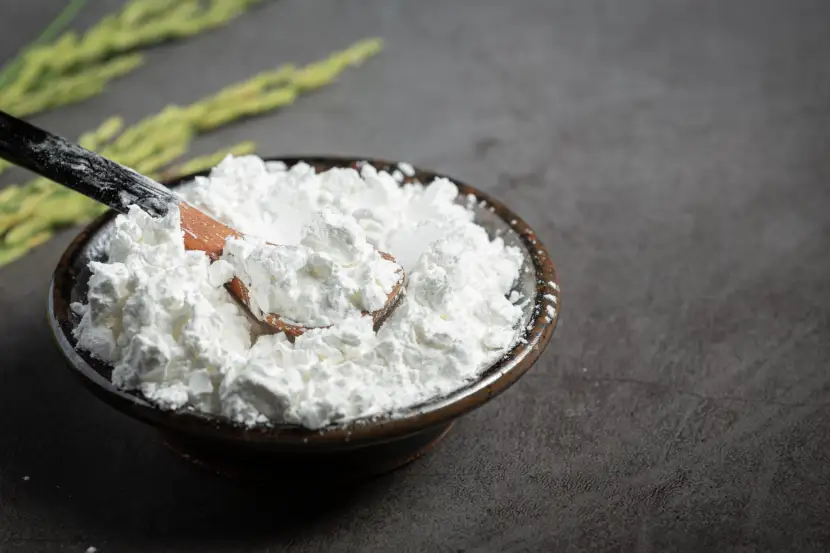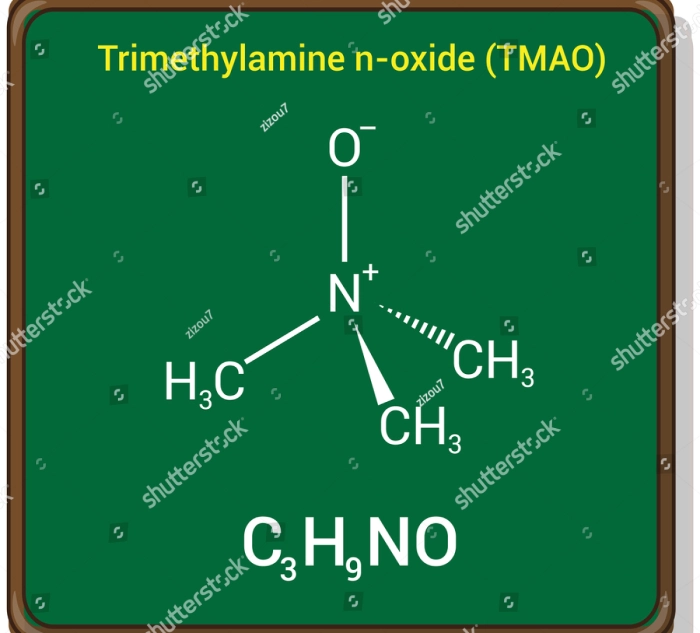What is Potassium Bicarbonate?
Potassium bicarbonate, a versatile compound with numerous potassium bicarbonate uses across various industries, has become increasingly important in modern applications. This white, crystalline substance serves as an essential compound in many everyday products and processes, from agricultural solutions to food manufacturing. Its growing popularity stems from its unique properties and environmentally friendly nature.
Chemical Properties and Formula
The chemical formula of potassium bicarbonate (KHCO₃) represents its composition of potassium, hydrogen, carbon, and oxygen atoms. When studying potassium bicarbonate in water, researchers have observed its exceptional solubility, dissolving readily to form clear solutions. This property, combined with its stable pH-buffering capacity, makes it invaluable across multiple applications. The compound’s molecular weight of 100.115 g/mol and its crystalline structure contribute to its stability and effectiveness in various formulations. Understanding the potassium bicarbonate formula is crucial for scientists and manufacturers who need to calculate precise measurements for different applications.
Natural Sources and Production
While potassium bicarbonate occurs naturally in mineral deposits, modern commercial production relies on sophisticated processes involving the reaction between potassium carbonate and carbon dioxide under carefully controlled conditions. This industrial process ensures the high purity levels required for various potassium bicarbonate uses in sensitive applications like food production and pharmaceutical manufacturing. The production method also influences the compound’s quality and consistency, crucial factors for its commercial applications.

The Science Behind Potassium Bicarbonate
Chemical Structure and Reactions
The molecular structure of potassium bicarbonate enables its remarkable versatility. When comparing potassium bicarbonate vs sodium bicarbonate, both compounds share similar basic properties but differ significantly in their specific applications and effects. The bicarbonate ion’s unique structure allows it to participate in various chemical reactions, making it valuable for pH regulation and as a buffering agent. In solutions, potassium bicarbonate maintains a stable pH range, making it ideal for applications requiring precise acid-base balance.
Behavior in Water Solutions
The behavior of potassium bicarbonate in water solutions is particularly noteworthy. Upon dissolution, it creates a slightly alkaline solution with a pH typically ranging between 8.0 and 8.6, depending on concentration. This characteristic makes it especially useful in applications requiring mild alkalinity without the harsh effects of stronger bases. When examining potassium bicarbonate vs potassium chloride in solution, the bicarbonate form shows superior buffering capabilities, making it preferable for pH-sensitive applications.
Agricultural Applications of Potassium Bicarbonate
Fungicide Properties and Effectiveness
One of the most significant potassium bicarbonate uses is in agricultural disease management. As a potassium bicarbonate fungicide, it has demonstrated remarkable effectiveness against various plant pathogens. Research has shown that potassium bicarbonate as a fungicide works through multiple mechanisms: it disrupts fungal cell membranes, alters local pH conditions unfavorable to fungal growth, and strengthens plant defense responses. Farmers and gardeners particularly value its effectiveness against powdery mildew, a common plant disease that affects numerous crop species.
Treating Powdery Mildew in Plants
When using potassium bicarbonate for powdery mildew control, timing and application method are crucial. Studies have shown that early application, when disease pressure is low, provides the best results. Potassium bicarbonate for plants offers several advantages over conventional fungicides: it leaves no harmful residues, has no pre-harvest interval requirements, and can be used in organic farming systems. Regular monitoring and preventive applications have proven most effective in managing this common plant disease.
Garden Application Methods
Professional gardeners have developed specific techniques for applying potassium bicarbonate in garden settings. The standard recommendation involves creating a solution by dissolving the compound in water, typically at a concentration of 1-2 tablespoons per gallon. For optimal potassium bicarbonate uses in gardens, applications should be made during dry weather conditions to allow proper contact time with plant surfaces. The solution should thoroughly cover both upper and lower leaf surfaces, and reapplication may be necessary every 7-14 days during periods of high disease pressure.
Industrial and Food Industry Uses
Food Preservation Applications
In the food industry, potassium bicarbonate uses extend far beyond basic preservation. As an FDA-approved food additive, it serves multiple functions in food processing and preservation. When comparing potassium bicarbonate vs sodium bicarbonate in food applications, many manufacturers prefer potassium bicarbonate due to its lower sodium content, making it ideal for reduced-sodium products. It acts as an effective leavening agent in baked goods, provides pH control in dairy products, and helps maintain product stability in various processed foods.
Beverage Industry Usage
The beverage industry extensively utilizes potassium bicarbonate for multiple purposes. Understanding the interaction between potassium bicarbonate and citric acid is crucial in beverage formulation, as these compounds work synergistically to create optimal taste profiles and stability. Sports drink manufacturers often incorporate it for its mineral supplementation properties. The compound’s ability to neutralize acids while adding beneficial potassium makes it particularly valuable in functional beverages. When examining potassium bicarbonate vs potassium citrate in beverage applications, manufacturers often prefer bicarbonate for its superior buffering capacity and clean taste profile.
Other Industrial Applications
Beyond food and beverages, potassium bicarbonate uses include fire extinguisher formulations, where it serves as a primary active ingredient in Class B and C fire extinguishers. In the pharmaceutical industry, it’s utilized in various formulations, including antacids and electrolyte replacement therapies. The cosmetic industry also benefits from its mild nature and pH-regulating properties.
Comparison with Similar Compounds
Potassium Bicarbonate vs Sodium Bicarbonate
When evaluating sodium bicarbonate and potassium bicarbonate, several key differences emerge. While both compounds act as effective buffers, potassium bicarbonate provides the additional benefit of potassium supplementation. This makes it particularly valuable in applications where sodium reduction is desired. The choice between sodium and potassium bicarbonate often depends on specific application requirements, cost considerations, and desired nutritional profiles.
Differences from Other Potassium Compounds
Understanding the distinctions between various potassium compounds is crucial for optimal application. When comparing potassium bicarbonate vs potassium chloride, the bicarbonate form offers superior pH-buffering capabilities and better taste characteristics. Similarly, in the analysis of potassium citrate vs potassium bicarbonate, each compound presents unique advantages depending on the specific application requirements.
Choosing the Right Compound
Selection of the appropriate compound depends on various factors including pH requirements, solubility needs, cost considerations, and specific application demands. For agricultural uses, potassium bicarbonate as a fungicide often proves more effective than alternative compounds. In food applications, the choice between potassium bicarbonate and sodium bicarbonate might depend on sodium content restrictions or specific functional requirements.
Health and Medical Applications
Benefits for Human Health
The health benefits associated with potassium bicarbonate uses have been documented in various medical studies. It plays a crucial role in maintaining proper pH balance in the body and can help support healthy kidney function. Research suggests that potassium bicarbonate benefits may include improved bone health through reduced calcium excretion and better mineral retention. When considering is potassium bicarbonate good for you, it’s important to note its role in maintaining proper electrolyte balance and potential benefits for blood pressure regulation.
Potential Side Effects
Understanding potassium bicarbonate side effects is crucial for safe usage. While generally recognized as safe, excessive consumption can lead to electrolyte imbalances. The side effects of potassium bicarbonate may include gastrointestinal discomfort if taken in large amounts. Individuals with kidney problems or those taking certain medications should consult healthcare providers before using supplements containing this compound.
Recommended Dosage Guidelines
Proper dosing varies depending on the specific application and individual needs. Medical practitioners typically provide guidance based on factors such as age, health status, and existing medical conditions. In food applications, the FDA has established specific guidelines for maximum usage levels.
Environmental Impact and Sustainability
Eco-friendly Properties
Among the many potassium bicarbonate uses, its environmental benefits deserve special attention. As a naturally occurring compound, it breaks down into environmentally benign components. When used as a potassium bicarbonate fungicide in agriculture, it leaves no harmful residues in soil or water systems. This makes it an excellent choice for organic farming and sustainable agricultural practices.
Environmental Considerations
The environmental impact of potassium bicarbonate in water systems is minimal compared to many synthetic alternatives. Its production process generally requires less energy than manufacturing synthetic fungicides or chemical additives. When comparing potassium bicarbonate vs baking soda from an environmental perspective, both compounds show favorable ecological profiles, though potassium bicarbonate’s multiple agricultural uses often make it more versatile in sustainable farming practices.
Sustainable Production Methods
Modern manufacturing facilities are increasingly adopting sustainable practices in potassium bicarbonate production. These include energy-efficient processes, waste reduction measures, and the use of renewable energy sources where possible. Such sustainable approaches help minimize the environmental footprint while maintaining product quality.
Commercial Availability
Where to Buy Potassium Bicarbonate
For those wondering where to buy potassium bicarbonate, numerous reliable sources exist. Commercial suppliers provide various grades suitable for different applications – from food-grade to agricultural-grade products. When considering where do I buy potassium bicarbonate, it’s important to select vendors who provide appropriate certification and quality documentation for your intended use.
Quality Considerations
Quality standards vary depending on intended potassium bicarbonate uses. Food-grade material must meet strict purity requirements and FDA regulations. Agricultural applications, such as potassium bicarbonate for plants, require specific certifications, especially for organic farming use. Manufacturers should provide detailed specifications and certificates of analysis.
Storage Requirements
Proper storage is crucial for maintaining product efficacy. The compound should be kept in sealed containers in a cool, dry place. When storing potassium bicarbonate for powdery mildew treatment or other agricultural uses, protection from moisture is particularly important to prevent degradation.

Safety Considerations and Precautions
Handling Guidelines
Safe handling practices are essential when working with potassium bicarbonate. While generally considered safe, users should follow basic safety protocols, particularly when preparing solutions of potassium bicarbonate and citric acid or other mixture combinations. Protective equipment such as gloves and dust masks may be necessary during handling.
Potential Risks
Understanding potential risks helps ensure safe usage across all applications. When using potassium bicarbonate as a fungicide or in food processing, following recommended concentrations is crucial. Interactions between potassium bicarbonate and sodium bicarbonate or other compounds should be considered in formulation development.
Safety Measures
Implementation of proper safety measures helps prevent accidents and ensures optimal results. This includes proper labeling, segregation from incompatible materials, and maintaining appropriate documentation for different potassium bicarbonate uses.
Regulatory Standards and Compliance
Global Regulations
Regulatory requirements for potassium bicarbonate vary by region and application. Food-grade material must comply with specific purity standards, while agricultural uses may require additional certifications. Understanding these regulations is crucial for proper application and compliance.
Quality Standards
Industry standards ensure consistent quality across different potassium bicarbonate uses. This includes specifications for purity, particle size, and chemical composition. Regular testing and documentation help maintain these standards.
Industry Requirements
Different industries have specific requirements for potassium bicarbonate applications. Food manufacturers must follow FDA guidelines, while agricultural users need to comply with organic certification requirements when applicable.
FAQs About Potassium Bicarbonate
- What are the primary potassium bicarbonate uses? The compound is widely used in agriculture, food processing, pharmaceuticals, and industrial applications, with particular effectiveness as a fungicide and pH regulator.
- How does potassium bicarbonate compare to similar compounds? When comparing potassium bicarbonate vs potassium citrate or other compounds, each has specific advantages depending on the application. The bicarbonate form excels in pH regulation and fungicidal applications.
- Is potassium bicarbonate safe for organic farming? Yes, it’s approved for organic agriculture when used as directed, particularly effective for potassium bicarbonate powdery mildew control.
Conclusion
Potassium bicarbonate stands as a versatile compound with numerous beneficial applications across multiple industries. From its effective use in agricultural settings to its important role in food and beverage production, the compound continues to prove its value. While some applications may require careful consideration of potassium bicarbonate side effects or specific usage guidelines, its overall safety profile and effectiveness make it an excellent choice for many uses. As research continues and new applications emerge, the importance of understanding and properly utilizing this compound becomes increasingly relevant for professionals across various fields.



